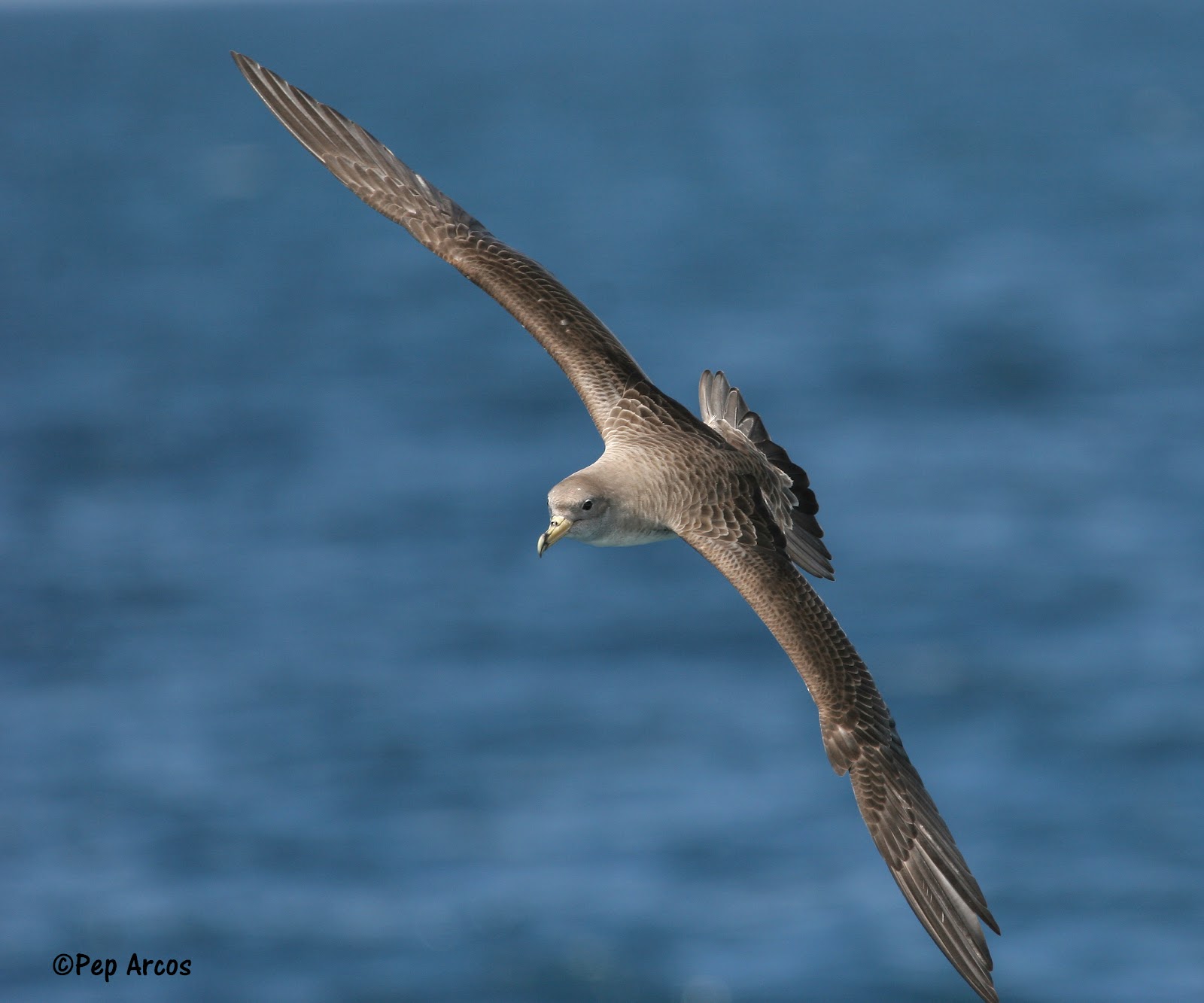
Scopoli's Shearwater, photograph by Pep Arcos
Nikolaos Simantiris (Department of Environment, Ionian University, Zakynthos, Greece) and colleagues have published open access in the journal Marine Environmental Research on determining bycatch hotspots for turtles and seabirds in the Mediterranean’s South Ionian Sea, including for Scopoli's Shearwater Calonectris diomedea.
The paper’s abstract follows:
“Bycatch, the incidental catch of non-target species, threatens marine megafauna such as sea turtles and sea birds in the Mediterranean region. Identifying bycatch hotspots is essential to guide mitigation measures and target audiences. In the Mediterranean Sea, South Ionian Sea in Greece is a major marine habitat, including critical nesting areas, for sea turtles, and an important breeding and foraging habitat for sea birds. This work combined methodologies to identify bycatch hotspots through a vulnerability assessment and questionnaire surveys utilising both scientific data and local ecological knowledge (LEK). The study determined the major bycatch hotspots for sea turtles and sea birds, evaluated the potential impact on both species, and discussed mitigation measures to reduce the impact of bycatch and effectively protect this economically and ecologically important ecosystem. Our approach and outcomes may well contribute to a science-based and LEK included, adaptive management framework regarding the establishment or revision of Marine Protected Areas in the study area and elsewhere across critical marine habitats for sea turtles and sea birds.”
With thanks to George Karris.
Reference:
Simantiris, N., Dimitriadis, C., Xirouchakis, S., Voulgaris, M.-D., Beka, E., Vardaki, M.Z. & Karris, G. 2025. Combining methods for detection of bycatch hotspot areas of marine megafauna species in and around critical rookeries and foraging areas. Marine Environmental Research 210, 107299.

 Español
Español  English
English  Français
Français